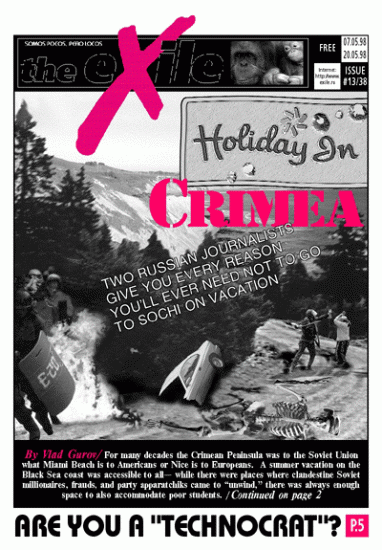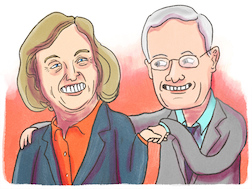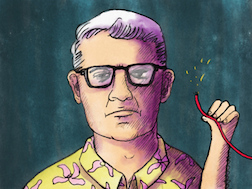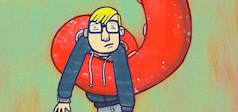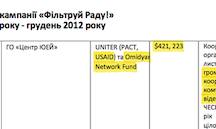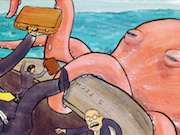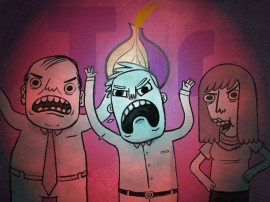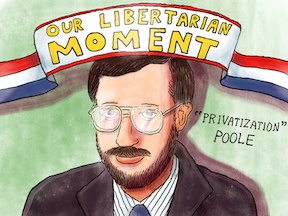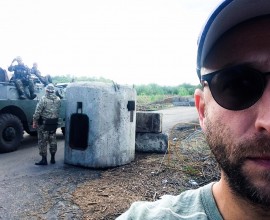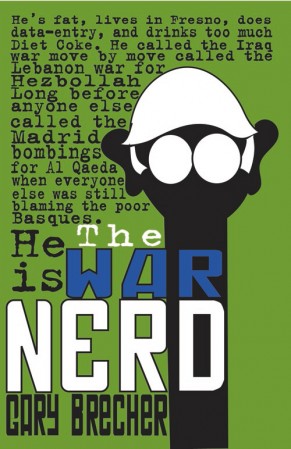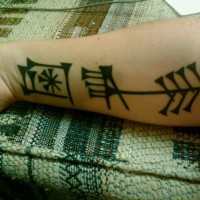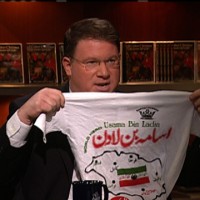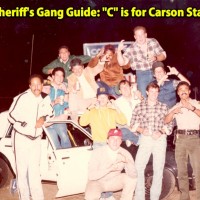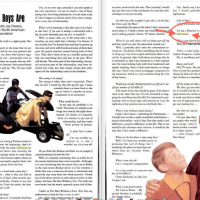This article was first published in The eXile on April 23, 1998
I am a convicted felon. I’ve never killed or raped anyone. I’ve never been involved in “commercial activities.” First I attended school, then a university. For two years I served in the Red Army. For the past six years I’ve been a journalist. Last year I was brought up on criminal charges by a Ukrainian court, convicted and sentenced to two years in prison. All I did was write a few words about the truth, which unfortunately later on I was unable to prove.
The trial was held in February of 1997. On top of the two years, the judge added a fine of $3,000. In Crimea, where the average salary for a journalist is $100 dollars a month, it is physically impossible to earn such a sum. That is, impossible to earn it by legal means.
Right now I’m in Moscow, under the protection of the Russian PEN club. I was forced to flee from the “free and democratic Ukraine”- a country where civil rights are not upheld and where the life of a man who is opposed to the existing regime is practically worthless. A country where the government mortally fears a journalist who tells the truth-fears him so much that it tries to imprison him, discredit him, kill him.
My aging mother remains in Crimea. To this day she cannot understand what crime her son is guilty of.
But I’ll describe everything in its own turn.
In 1994 I was invited to work for the Meshchanskaya Gazeta. At that time, the paper’s circulation, 220,000, was the highest in Ukraine. The newspaper was published in Simferopol, the capital of the Crimean Autonomous Republic. I sympathized with the political views of the paper’s publisher, Valeri Averkin: “The Crimea is a Russian territory, Sevastopol is a city of Russian fame.” Thirty years ago Nikita Khrushchev gave the Crimea to the Ukraine without having first conducted a popular referendum. 85 percent of the Crimean population are ethnic Russians. So the territory’s handover is highly questionable. That’s all we were telling our readers. We weren’t calling for an armed uprising, nor were we trying to fan the flames of nationalism. How could it even be a question of nationalism when, for example, my father is a Ukrainian from Kiev, and my mother, a Russian from Siberia? I guarantee that there are many, many children of mixed parentage, like myself, in Crimea.
Crimea held its presidential elections in 1994. Yuri Meshkov, a lawyer and one of the leaders of the Crimean Republican Movement, became our president. Our newspaper gave him our full support. However, only a year later, Meshkov was removed from his post. He was ousted illegally, through soviets on various levels. But the president was elected not by the soviets, but by the people, although the people proved to be of no concern to anyone in this matter. Yuri Meshkov emigrated to Russia and became a president-in-exile.
In 1995 the Ukrainian government initiated a wave of repression directed against Crimean citizens with pro-Russian sentiments. The victims were mostly journalists.
In the fall of 1995 I was driving the newspaper’s car through the mountains on my way from Simferopol to Yalta. A police post lies not far from where the road begins its downward descent. About a hundred meters from the post, I was stopped by four people attired in police uniforms. All four were armed with Kalashnikovs. I was ordered to step out of the vehicle, which I refused to do since the uniformed men neither introduced themselves nor showed me any documents. At which point two of them turned their automatics in my direction and opened fire.
In general, I’m a pretty bad driver. I’ve never had my own car and haven’t had much practice behind wheel. But at that moment, I was probably acting in accordance to some animal instinct and, because of it, managed to save myself. I ducked under the steering wheel, shielding myself from the bullets, and, by some miracle started the car moving. In the process my car ran over one of the gunmen. I’m not even certain whether they fired after me. Besides me in the car were our photographer and a female intern. Fortunately, they weren’t hit either. The car was turned into a sieve.
Attached to the front window of our old Mercedes 190 was a red and white placard with the word “Press”. It would have been impossible for “policemen” not to have seen it.
For some reason the incident did not cause any kind of reaction at the headquarters of the Ukrainian Ministry of Internal Affairs in Crimea. The police investigation revealed that the attackers were not members of the police. In other words, everything was blamed on criminals who supposedly had wanted to deprive us of our car. However, I was able to uncover some information of a more curious nature. It turned out that two policemen posted at the station near which the incident took place were hospitalized, with fractures of various degrees of seriousness, the same night that the shoot-out happened. Interesting? Nonetheless, the police declined to conduct a further investigation. I believe that the attack on our car was carried out by the police on an order from above. But that, of course, is only conjecture…
The intimidation continued. I was frequently visited either at work or at home by unknown people who threatened and tried to bribe me. It’s unpleasant to even speak of it. They demanded that the newspaper change its position. By that time I was already the editor of the political and crime department, and I wasn’t in a position to bargain with anybody. So the newspaper continued on it’s pro-Russian course.
The newspaper was ultimately shut-down in 1996. At first, we were accused of improperly filing for our license. Then our bank accounts were frozen so they could supposedly be inspected. Our publisher was forced into bankruptcy. Yet even that wasn’t enough for them.
In May 1996 I received notification by mail that the prosecutor’s office had a criminal case against me for spreading of false information, citing Statute 125, paragraph 4, which carried a penalty of up to five years in prison. For what?!!!
The investigation lasted half a year. Three investigators came and went. I was hauled in for questioning almost daily. Local lawyers categorically refused to defend me, considering my case to be hopeless. Only one lawyer, Yuri Strebul, agreed to represent my interests in court. But even he after a while called me to say that his family was being pressured and that he would most likely be unable to help me.
Soon thereafter, Yuri Strebul was shot and killed near his house. The killers was never found. The question is whether anyone ever looked for them in the first place.
So I went to trial without an attorney. Ukrainian public defenders refused to represent me, and Russian ones were forbidden to take part in the process by the Ukrainian government. The trial itself was postponed for several months. The judge, named Zhivykh, who was overseeing my case, probably wanted to examine everything fairly. Which is probably why in February he, a healthy 45-year-old, died under peculiar circumstances. By the end of February, the newly appointed replacement for Zhivykh, a pudgy, red-headed battleaxe had already passed sentence: two years in prison with a two-year suspended sentence, plus the fine. For the duration of the two years, I was to check in with the police every month. If the police wished to file any claims against me, I was to be put in prison on the spot.
Everything my aging mother had in the house was confiscated. My father had died early, and all her life she had to raise me by herself. The court took EVERYTHING from the house- as reparation for my “crimes”. They sought to force me to beg for mercy, to appeal, to grovel on my belly before the Ukrainian government which trampled me underfoot. But no, I refused to abase myself. I worked for another year so as to somehow provide for my mother.
Finally, in April of this year, I illegally crossed the border and came to Moscow. Alexander Tkachenko, the general director of the Russian PEN-club, helped me to find a job and agreed to defend my honor and decency in court. Lawyers maintain that my case had been concocted.
My wife, Julia, joined me in my exile. On April 26 we celebrated our first wedding anniversary. In Moscow, we have neither a home nor relatives. We’re renting an inexpensive room and have barely enough money to eat. But at least here in Moscow, for some reason, we feel that we are safe.
Posted: June 11th, 2014


